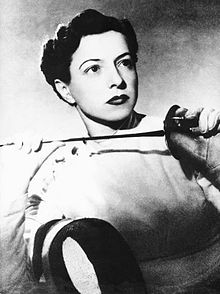Ilona Elek
 | ||||||||||||||||||||||||||||||||||||||||||||||||||||||||||||||||||||||||||||||
| Personal information | ||||||||||||||||||||||||||||||||||||||||||||||||||||||||||||||||||||||||||||||
|---|---|---|---|---|---|---|---|---|---|---|---|---|---|---|---|---|---|---|---|---|---|---|---|---|---|---|---|---|---|---|---|---|---|---|---|---|---|---|---|---|---|---|---|---|---|---|---|---|---|---|---|---|---|---|---|---|---|---|---|---|---|---|---|---|---|---|---|---|---|---|---|---|---|---|---|---|---|---|
| Birth name | Ilona Schacherer | |||||||||||||||||||||||||||||||||||||||||||||||||||||||||||||||||||||||||||||
| Full name | Ilona Elek-Schacherer | |||||||||||||||||||||||||||||||||||||||||||||||||||||||||||||||||||||||||||||
| Born | 17 May 1907 Budapest, Hungary | |||||||||||||||||||||||||||||||||||||||||||||||||||||||||||||||||||||||||||||
| Died | 24 July 1988 (aged 81) Budapest, Hungary | |||||||||||||||||||||||||||||||||||||||||||||||||||||||||||||||||||||||||||||
| Sport | ||||||||||||||||||||||||||||||||||||||||||||||||||||||||||||||||||||||||||||||
| Sport | Fencing | |||||||||||||||||||||||||||||||||||||||||||||||||||||||||||||||||||||||||||||
| Event | Foil | |||||||||||||||||||||||||||||||||||||||||||||||||||||||||||||||||||||||||||||
Medal record
| ||||||||||||||||||||||||||||||||||||||||||||||||||||||||||||||||||||||||||||||
Ilona Elek, known also as Ilona Elek-Schacherer (née "Schacherer," May 17, 1907 in Budapest, Hungary – July 24, 1988 in Budapest) of a Jewish father and Roman Catholic mother,[citation needed] was a Hungarian Olympic fencer.[1] Elek won more international fencing titles than any other woman.[2]
Fencing career
Elek competed for Hungary in three Olympiads, winning three medals. She is considered to be one of the greatest female fencers in the history of the sport.[3]
Hungarian National Championships
Elek won the Hungarian foil championship in 1946–47, 1949–50, and 1952.
World Championships
Elek won the gold medal in women's foil at the World Championships in 1934, 1935, and 1951. She won silver in 1937 and 1954, and bronze in 1955.[4]
Olympics
Elek was the first woman to win two Olympic gold medals in the individual foil competition.[2]
Elek's first Olympic competition was at the 1936 Summer Olympics in Berlin, Germany, at the age of 29. She won the gold medal in the foil event, the first Hungarian woman to win a gold medal at the Olympics. In the process, Elek, who was Jewish,[5] defeated a German with a Jewish father, Helene Mayer.[4] The bronze medal went to Ellen Preis, an Austrian Jew.
The Games were cancelled in 1940 and 1944. When the Games resumed after World War II, at age 41 she repeated her performance as Olympic champion by winning a gold medal in the 1948 Summer Olympics in London, England.[4] It marked the fifth Olympics in a row where a Jewish woman had won the gold medal in foil. Ellen Preis again won the bronze medal.[6]
Elek won the silver medal at the 1952 Helsinki Games. After winning her first five matches in the final pool, she was in contention for the gold medal, but she lost to American Maxine Mitchell, and Italian Irene Camber, who won the gold.[4]
See also
References
- ^ "Ilona Elek Olympic Results". sports-reference.com. Retrieved 3 June 2010.
- ^ a b Ilona Elek on Encyclopædia Britannica
- ^ Peter S. Horvitz (2007). The Big Book of Jewish Sports Heroes: An Illustrated Compendium of Sports History and The 150 Greatest Jewish Sports Stars. SP Books. Retrieved 19 November 2010.
- ^ a b c d "Scharerer-Elek, Ilona". Jews in Sports. Retrieved 18 February 2014.
- ^ Paul Taylor. Jews and the Olympic Games: The Clash Between Sport and Politics. Retrieved 20 October 2011.
- ^ Jewish Athletes at the United States Holocaust Memorial Museum Archived February 5, 2005, at the Wayback Machine
External links
- 1907 births
- 1988 deaths
- Hungarian female fencers
- Olympic fencers of Hungary
- Fencers at the 1936 Summer Olympics
- Fencers at the 1948 Summer Olympics
- Fencers at the 1952 Summer Olympics
- Olympic gold medalists for Hungary
- Olympic silver medalists for Hungary
- Olympic medalists in fencing
- Jewish fencers
- Jewish Hungarian sportspeople
- Sportspeople from Budapest
- Medalists at the 1936 Summer Olympics
- Medalists at the 1948 Summer Olympics
- Medalists at the 1952 Summer Olympics
